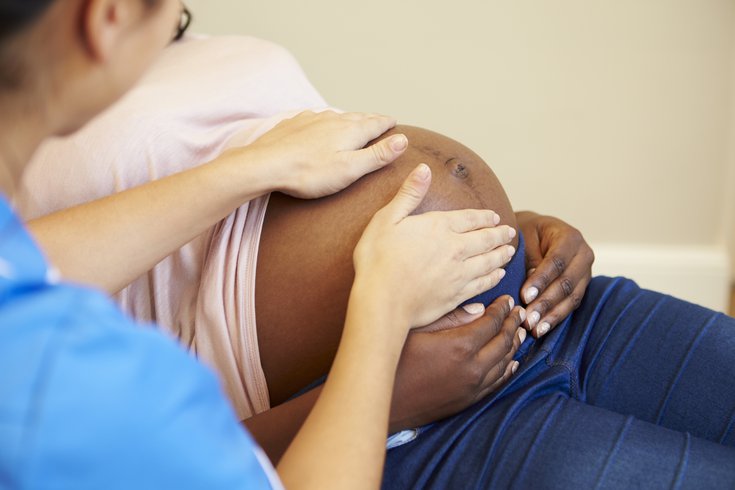
April 22, 2021
 Source/Image licensed from Ingram Image
Source/Image licensed from Ingram Image
The maternal mortality rate for Black women in 2019 was 44 deaths per 100,000 live births — about 2.5 times the rate for white woman, according to the CDC.
Black women are about 2.5 times more likely to die during pregnancy, delivery or in the initial weeks after childbirth than white women.
Efforts to eliminate that disparity — one of many racial health inequities in the U.S. — have intensified in recent months. Vice President Kamala Harris has made the issue one of her top priorities. And in February, lawmakers re-introduced legislation aimed at reducing inequities in Black mothers' treatment.
Now, the Blue Cross Blue Shield Association has committed to take action.
The health insurer is adopting a new national health equity strategy aimed at reducing racial health disparities in four major areas — maternal health, behavioral health, diabetes and cardiovascular conditions.
Its first goal? Reducing racial disparities in maternal health by 50% within five years.
"Your health shouldn't depend on the color of your skin or the neighborhood you live in," said Kim Keck, CEO of Blue Cross Blue Shield. "The crisis in racial disparities in our country's health care is unconscionable and unacceptable. While BCBS companies have made great strides in addressing racial health disparities in our local communities, there is so much more to be done."
The maternal mortality rate in the U.S. increased to 20.1 deaths per 100,000 live births in 2019, according to the most recent data from the Centers for Disease Control and Prevention. The rate for Black women (44.0) dwarfed the rates for white (17.9) and Hispanic women (12.6).
In Philadelphia, the disparity is even worse. Black women accounted for 73% of pregnancy-related deaths from 2013 to 2018 despite representing just 43% of births, according to a city report released last month.
The CDC considers about two-thirds of maternal deaths preventable.
Blue Cross Blue Shield has assembled an advisory panel of doctors, public health experts and community leaders to shape its new strategy. To measure progress, Blue Cross Blue Shield will release annual results, including metrics used by the CDC.
In the Philly region, Independence Blue Cross has pledged to implement the strategy outlined by BCBS. The company said it will continue supporting local initiatives to improve maternal health. That includes Project HOME's Centering Pregnancy program benefitting expectant mothers in North Philadelphia.
Other existing efforts include Baby Blueprints, a maternal care program that seeks to better understand how the social determinants of health affect high-risk maternity patients, and the Bright Start Maternity Program, which aims to ensure members receive early and ongoing prenatal care.
"Independence has a long history of serving our community's most vulnerable citizens by providing increased access to care and addressing serious health issues that affect these populations in greater numbers," Independence CEO Gregory E. Deavens said. "We stand united with BCBSA in the effort to raise the bar even higher and escalate our efforts to create communities where no one is left out and people can live their healthiest life, regardless of their zip code."
Blue Cross Blue Shield's new strategy follows increased efforts from the White House to improve Black maternal health.
Last week, the Biden administration said it would invest $200 million to reduce maternal mortality and morbidity, and another $340 million to fund the Title X Family Planning program, which provides access to reproductive and preventive health services.
In an interview with STAT, Harris said systemic disparities and implicit bias have prevented substantial progress at addressing racial biases in medicine, including maternal health.
"With every day that goes by and every woman who dies, the need for action grows more urgent," Harris said. "Our administration is taking action, advancing initiatives like implicit bias trainings, which will help ensure Black women are heard; state pregnancy medical home programs, which will improve the quality of perinatal care for those on Medicaid, and Maternal Mortality Review Committees, which would provide crucial data on the deaths of mothers who die within a year of pregnancy."
As a senator, Harris was the lead sponsor of the Black Maternal Health Momnibus Act, a package of 12 bills that would fund community-based maternal health organizations, diversify the perinatal workforce and invest in the social determinants of health — factors that include housing, transportation and nutrition. The act was reintroduced in Congress earlier this year.